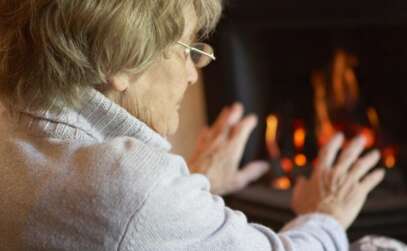New to family caregiving? How to get started (2024 edition)
If you are suddenly faced with the role of becoming a caregiver for a senior, you are not alone. There are over 8.1million unpaid caregivers in Canada, many of whom are looking after seniors with age-related health problems. That means that 25% of all Canadians provide care for family members, those with long-term health conditions, or physical or mental disabilities.
Caring for senior parents and partners
As a child of aging parents yourself, this probably won’t come as a surprise. It may have become increasingly clear in the past few months that your senior parents are going to need a lot of extra care. Equally, your partner or a close family member may fall ill or have an accident, and require daily care.
As a result, you may find yourself in the unexpected role of a family caregiver, sometimes almost overnight. That can be daunting and challenging, and you may struggle to know quite where to start. The good news is that help and support is out there. So, we’ve put together these tips for new caregivers to help you get started.
What does your loved one want?
Someone who is suddenly ill or whose health is in decline will naturally be worried and concerned about the future. Be prepared that most people who are in hospital will want to “come home” asap, regardless of whether that is a suitable option or not!
Talk to them (if you can) about what they would like for their care and living arrangements moving forward. Don’t necessarily assume that senior parents will either expect or want to come and live with you, or indeed you to live with them. May would far rather ‘age in place’ in their own homes. It may well be that returning home with home care in place might be the best option for you, your parents and your own family. (More on this here.)
Talk to the family
Discussing the situation with the rest of the family can help everyone understand and to come to terms with what has happened. Remember to include your loved one’s wishes too. Between you all, make and write down plans for both the short and long term. This may involve each family member taking on specific times/shifts for care until home care and other arrangement can be made.
If you decide it would be best that you become the primary caregiver, make sure that the whole family will help you. Do not feel pressured into becoming the primary caregiver just because other family members live further away and have ‘busy lives’.
It can be difficult for family members who live far apart to share the physical workload on a daily basis, but there is still plenty they can do remotely such as:
- Booking and organizing tradesmen
- Ordering grocery deliveries online
- Paying bills via online banking
- Tax, potential allowances and other paperwork
Make sure they also come to stay (or book care services) as regular in-person respite visits for you too!
Call your local home care company
Home care companies have a wealth of experience in helping new family caregivers. At Vytality at Home, we understand that you may feel out of your depth and try to take too much on board, We can offer practical help with experienced home caregivers both in the early days and ongoing, as required.
Please don’t be afraid to call – in fact, the earlier you call, the earlier we can help. As you can appreciate, we can’t just send our caregivers out for the first time without having met you, and having a care plan in place.
We will come to meet you for a consultation, to better understand you and your loved ones’ needs, the home environment, and help assess what level of home care would best suit you all. Once that’s done, we can put a plan in place, and you can of course request extra visits and book longer periods of respite care as required.
Powers of Attorney
You may need to make decisions on behalf of your loved one on both personal and financial matters. This is much easier if your loved ones have already created Powers of Attorney:
“A power of attorney is a legal document that you sign to give one person, or more than one person, the authority to manage your money and property on your behalf. In most of Canada, the person you appoint is called an “attorney.” You must be mentally capable at the time you sign any type of power of attorney for it to be valid.”
If there is power of attorney (POA) already in place and you are a named attorney, you can usually act on your loved one’s behalf straight away. This will make dealing with banks, paying bills, talking to doctors and pharmacies etc, far easier and quicker.
if not, draw up the required POAs as soon as possible. There are four main types, but probably the most familiar are the Personal Directive and an Enduring Power of Attorney. A lawyer will help you draw up these POAs with you and your loved one. Remember to add other family members as attorneys if you want to share the paperwork.
For more details see our blog or check out The Alberta government site.
Consult the experts
When illness or ill health is an issue, you may not know much about your loved one’s condition and their requirements. Learn as much as you can by talking to medical professionals, health workers and home care experts. The more information you have, the better prepared you can be.
Be wary of consulting “Dr Google” as it can get overwhelming (and a little scary!). Instead, consult a specialist organization website for specific conditions such as diabetes, dementia, and Alzheimer’s, arthritis and many others. Many have great resources to help you as the primary caregiver to help your loved one better.
Home adaptations and timescales
It can take considerable time to organize and make adaptations if they are required. You may need to rearrange your home or your loved ones’ home to accommodate living on one level, for example, add ramps and rails outside, or adapting the bathroom as mobility becomes more limited.
If adaptations are required, it’s always best to find a local Calgary company with experience in this kind of work. At Vytality at Home, we have a list of approved trade and services Partners that we know do a very good job at reasonable rates! Again, the earlier you call one of our Partner company, the sooner they can quote and book in the job as required.
Local community support
We are constantly surprised at just how many people in our Calgary communities give up their time to help others. From dial-a-ride transport to social clubs and outings, there are lots of choices to support seniors and the disabled – and their family caregivers. Go online to discover what’s available, or call us for our local support network knowledge; we’re happy to help.
Be realistic
When your first consider becoming a family caregiver, you may not realise just how much extra work and disruption it will add to your own life. A study in 202 found that:
“Caregivers were reporting over 40 hours of unpaid caregiving per week – the equivalent of a full-time job.”
In addition, there are those caring for two care-dependent groups, children and adults with a disability or long-term health condition. According to a McGill study:
“Of 13.4million unpaid caregivers 13% provided care to both of these care-dependent groups, meaning that 1.8 million Canadians older than 15 years were “sandwiched” between multiple care responsibilities.”
If you have a family of your own, or work, becoming a “sandwiched” family caregiver will take time from both of these. Be realistic about how much you can do, and when.
Build your own emotional support network
Becoming a family caregiver can be emotionally draining, so it’s important that you can talk it through with supportive friends and colleagues. Once you start talking about this, you’ll discover that a lot of your social circle have similar experiences, especially in the case of caring for aging and/or widowed parents. Never underestimate the restorative power of someone just saying “I know, my mom is just the same”!
Home care is here to help
Home care from Vytality at Home can give you the peace of mind that a loved one is being looked after by caring professionals while you can continue to live your life. Our two hour visits allow plenty of time to give personal care, do some chores, maybe do a brain game to keep aging minds active, and have a chat too.
Chatting is perhaps one of the most important things our caregivers do. It gives your loved one another window on the outside world, and something different to talk to you about!
Contact us at Vytality at Home
Please do call us to discuss your situation. As a leading home care provider in Calgary, we really do want to support local people in their family caregiver role right from the start.




